According to recent data from Dogster, approximately 50% of New York households own a pet – a figure that will come as a shock to anyone who’s visited a New York City park on a nice day, and down from 66% of households in the United States. However, New Yorkers’ love for their pets shows in their spending habits and their activities.
A study by Thrillist found that more than half of New York City pet owners spend more money on their pets’ grooming than on their own. Restaurants with outdoor dining allow dogs to join their owners there. On a walk down any given street, one will likely see dogs in more fashionable coats and shoes than the humans might be wearing; and, between major chains and independent boutiques alike, there is no shortage of places to shop for the outfits and other pet supplies.
A study by Thrillist found that more than half of New York City pet owners spend more money on their pets’ grooming than on their own. Restaurants with outdoor dining allow dogs to join their owners there. On a walk down any given street, one will likely see dogs in more fashionable coats and shoes than the humans might be wearing; and, between major chains and independent boutiques alike, there is no shortage of places to shop for the outfits and other pet supplies.
In this article:
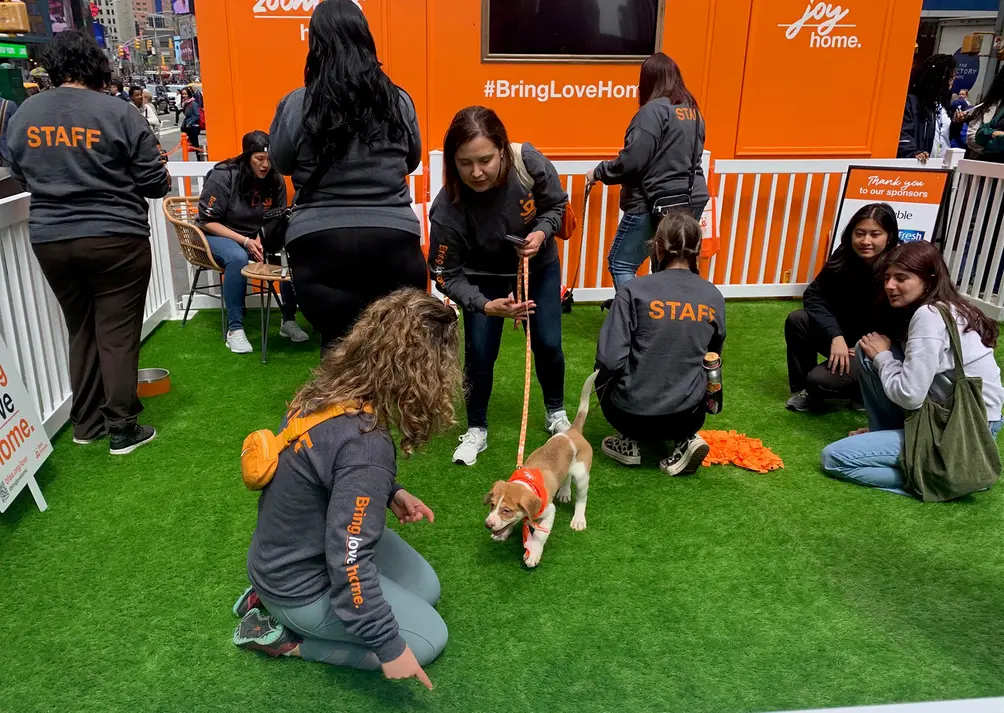 Best Friends adoption event in Times Square (CityRealty)
Best Friends adoption event in Times Square (CityRealty)
Bring a little love home.
— Mayor Eric Adams (@NYCMayor) April 30, 2024
This National Adopt a Shelter Pet Day, commit to taking care of our furry, feathered, and four-legged New Yorkers.
Visit https://t.co/B0RmhfqvLO for more. pic.twitter.com/diyNR78I5Z
New York is also home to some of the most exciting pet adoption opportunities. On April 30, Best Friends Animal Society is hosting a doggie play yard in Times Square with adoptable dogs in honor of Adopt a Shelter Pet Day, at which time all adoptions will be free. A borough away in Gowanus, Badass Animal Rescue is partnering with local hot spot Canal Bar for Woofstock, a street festival with adoptable animals, on May 4. The events come about eight months after a new, state-of-the-art Bideawee shelter opened in Chelsea in August 2023, and organizations like Animal Care Centers of NYC, the Humane Society of New York, and the ASPCA Adoption Center are still going strong.
This takes place in a city where the power of the pet parent is impossible to ignore. A OnePoll survey found that a whopping 87 percent of pet owners say their pet’s needs are essential to their renting decisions. Additionally, the 2021 Pet-Inclusive Housing Report from the Michelson Found Animals Foundation and the Human Animal Bond Research Institute states that one in four pet owners would be willing to move somewhere better suited for their pet. Indeed, whether renting or buying, some New Yorkers would no sooner move without their furry friends than parents would move without their children.
"Guess what happens when property managers start prioritizing pet owners? They see higher rents, better retention and what we call the halo effect: the property becomes more appealing to other demographics." - Danit Zivan, Co-Founder, Bark Buildings
Building owners and developers have also taken notice of New Yorkers’ love of their pets, especially as statistics emerged to show that pet-friendly policies would be in their best interests. A report from November 2020 found that when New York City landlords became more flexible with their pet policies and weight limits, it helped drum up new business in several cases. More recently, the Pet-Inclusive Housing Report found that 83 percent of building owners/operators said pet-friendly vacancies filled up faster, and that residents in pet-friendly housing stay 21 percent longer than those where pets are not welcome.
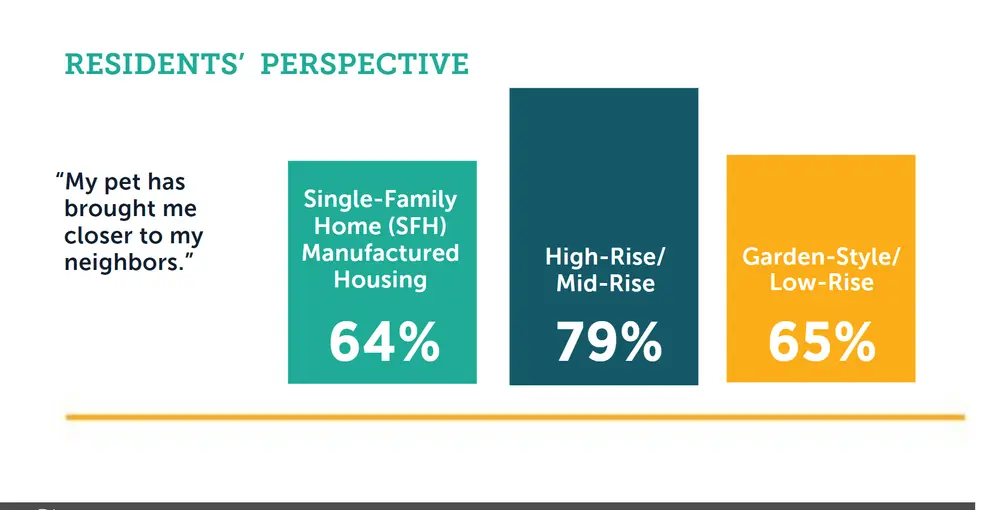 Data via 2021 Pet-Inclusive Housing Report (https://www.foundanimals.org/pets-and-housing/2021-pet-inclusive-housing-report/)
Data via 2021 Pet-Inclusive Housing Report (https://www.foundanimals.org/pets-and-housing/2021-pet-inclusive-housing-report/)
In light of this, developers and property managers are working to accommodate this demographic. For some, this goes far beyond instituting a pet-friendly policy to incorporating dog runs, pet washing stations, and partnerships with local pet care firms and vets, thus providing canine residents with the same level of service and luxury as their humans received.
This article presents everything people need to know about finding a building that welcomes pets, how to prepare for the move, and what types of animals may and may not be kept in New York City. We also look at some of the pet-friendliest condo and rental buildings in the five boroughs.
This article presents everything people need to know about finding a building that welcomes pets, how to prepare for the move, and what types of animals may and may not be kept in New York City. We also look at some of the pet-friendliest condo and rental buildings in the five boroughs.
 If you live in New York and want a puppy like Ash, read this first. (CityRealty)
If you live in New York and want a puppy like Ash, read this first. (CityRealty)
Pet-friendly buildings
When a listing indicates that a New York building allows pets, this could refer to any number of attitudes. Some buildings tolerate animals’ presence in units but restrict them to the service elevator, while others have door staff who greet the dogs by name and have treats on hand. Either way, just because a building allows pets does not mean residents may own as many animals as they want. “Pet-friendly” usually refers to one dog or two cats; board approval may be required for more than that.
If a formerly pet-friendly building decides to change its policy, it is likely that the pets already living there will be grandfathered in and allowed to stay. And all hope is not lost for people living in pet-free buildings: According to the New York City Pet Law, owners in a pet-free building may keep their pets without consequence if they have openly had the animal for three months or more without the landlord citing them or seeking eviction.
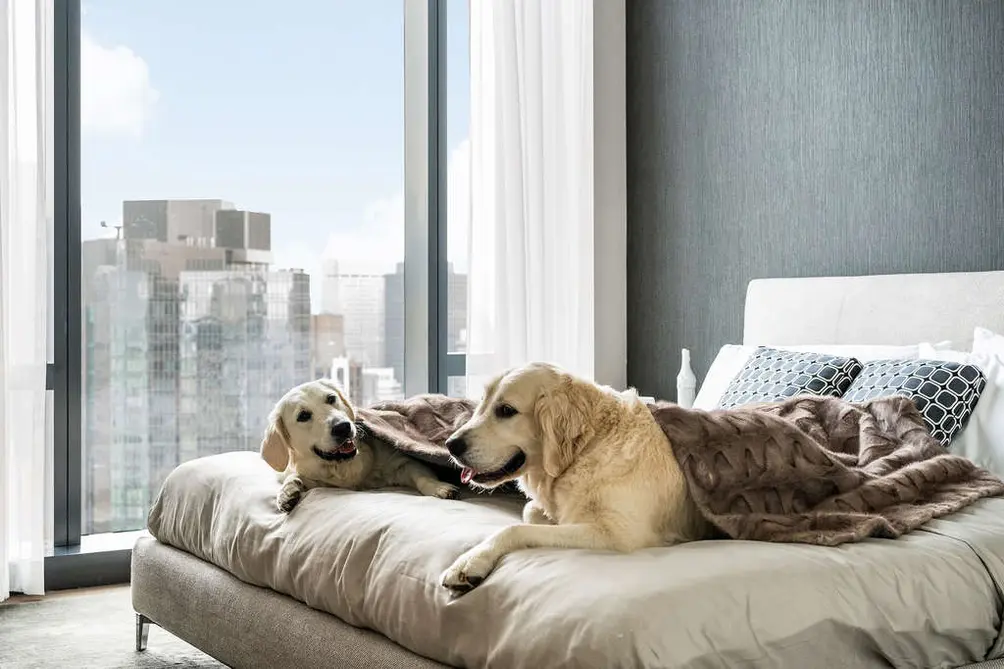 It's up to pet owners to decide whether to allow dogs on the bed, but they are obligated to follow buildings' rules. (277 Fifth Avenue via Kenneth Chen)
It's up to pet owners to decide whether to allow dogs on the bed, but they are obligated to follow buildings' rules. (277 Fifth Avenue via Kenneth Chen)
But when a building welcomes pets, that does not mean the animals are allowed to wreak havoc. The majority of apartment buildings require pets to be on leashes or in carriers for walks through the lobby, and some ban animals from amenity space like lounges and roof decks altogether. If a pet has an accident on the way outside, the onus is on its owner to clean up after it.
In the apartments themselves, pet owners are responsible for keeping their animals well-groomed to avoid flea infestations and damage to floors for overly long nails. They are also responsible for addressing and responding to complaints about their pets’ excessive noise and/or aggressive behavior towards other residents and other pets.
In the apartments themselves, pet owners are responsible for keeping their animals well-groomed to avoid flea infestations and damage to floors for overly long nails. They are also responsible for addressing and responding to complaints about their pets’ excessive noise and/or aggressive behavior towards other residents and other pets.
It is important to mention that these rules apply both to resident pets and animals who come to visit the building, whether for an afternoon or a weekend. If residents do not abide by them, they run the risk of eviction, losing some or all of their security deposit, or being forced to get rid of their pet.
Pet Preparations and Restrictions
As animal lovers get ready to make a move, they should be prepared to submit their pets’ names, breeds, pictures, vaccination and spay/neuter records, and any complaints or behavioral issues to the building’s management or board. Some buildings are prepared to leave it at that, while certain co-ops have been known to require dogs, and even birds, to be part of the board interview to observe the animals’ behavior firsthand.
If everything goes well, pet owners should be expected to literally pay for the privilege. Many buildings charge monthly pet fees to counteract any damage the animal(s) might do to an apartment. Additionally, some pet owners have been asked to pay an extra deposit with that in mind.
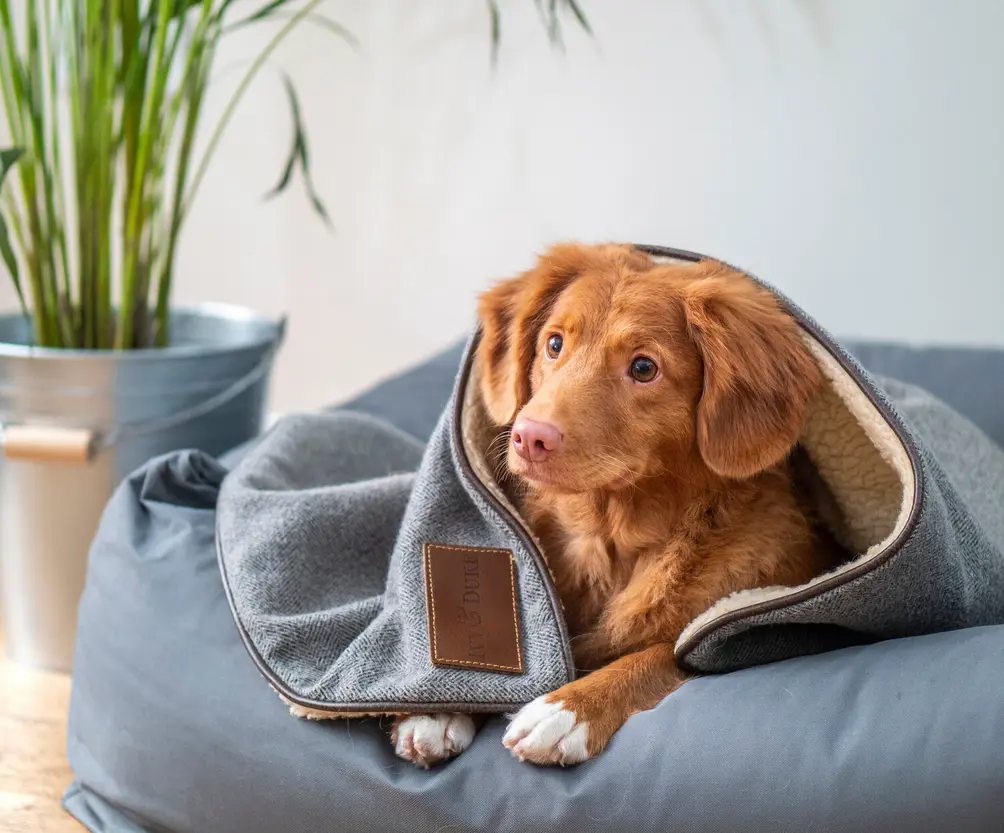 Who could say no to this face? (Far Fetched)
Who could say no to this face? (Far Fetched)
Several buildings that allow dogs have weight and/or breed limits in place, though not everyone is happy about that. Governor Hochul signed legislation that prohibits insurers from discriminating against policyholders based solely on the breed of dog that they own in October 2021, and activists are working to put an end to breed-specific legislation. In the meantime, as anyone who’s seen a Great Dane at the dog run knows, it is possible to own a big dog in New York; their owners are simply advised to put more time and effort into their search. They are also advised to work with a broker who has experience in this area.
In 2010, NYCHA banned pit bulls, Doberman pinschers, and Rottweilers, both purebred and mixed, from their developments. Some buildings are prepared to expand on that list and take enforcement seriously - an Upper West Side co-op attracted some notoriety for requiring dog DNA tests.
In 2010, NYCHA banned pit bulls, Doberman pinschers, and Rottweilers, both purebred and mixed, from their developments. Some buildings are prepared to expand on that list and take enforcement seriously - an Upper West Side co-op attracted some notoriety for requiring dog DNA tests.
Service and Emotional Support Animals
According to the Americans with Disabilities Act, all housing providers, even those with a pet-free policy, must allow those with a disability to have their service animal with them. This term most commonly refers to guide dogs for the blind, hearing dogs for the deaf, and dogs specially trained to work or perform tasks for people with other disabilities, including psychiatric.
Because of their extensive training, service dogs are considered working animals as opposed to pets, and buildings may not charge pet fees for them. However, their owners must still abide by rules about leashes, vaccinations, housebreaking, and pet behavior set by the building.
Because of their extensive training, service dogs are considered working animals as opposed to pets, and buildings may not charge pet fees for them. However, their owners must still abide by rules about leashes, vaccinations, housebreaking, and pet behavior set by the building.
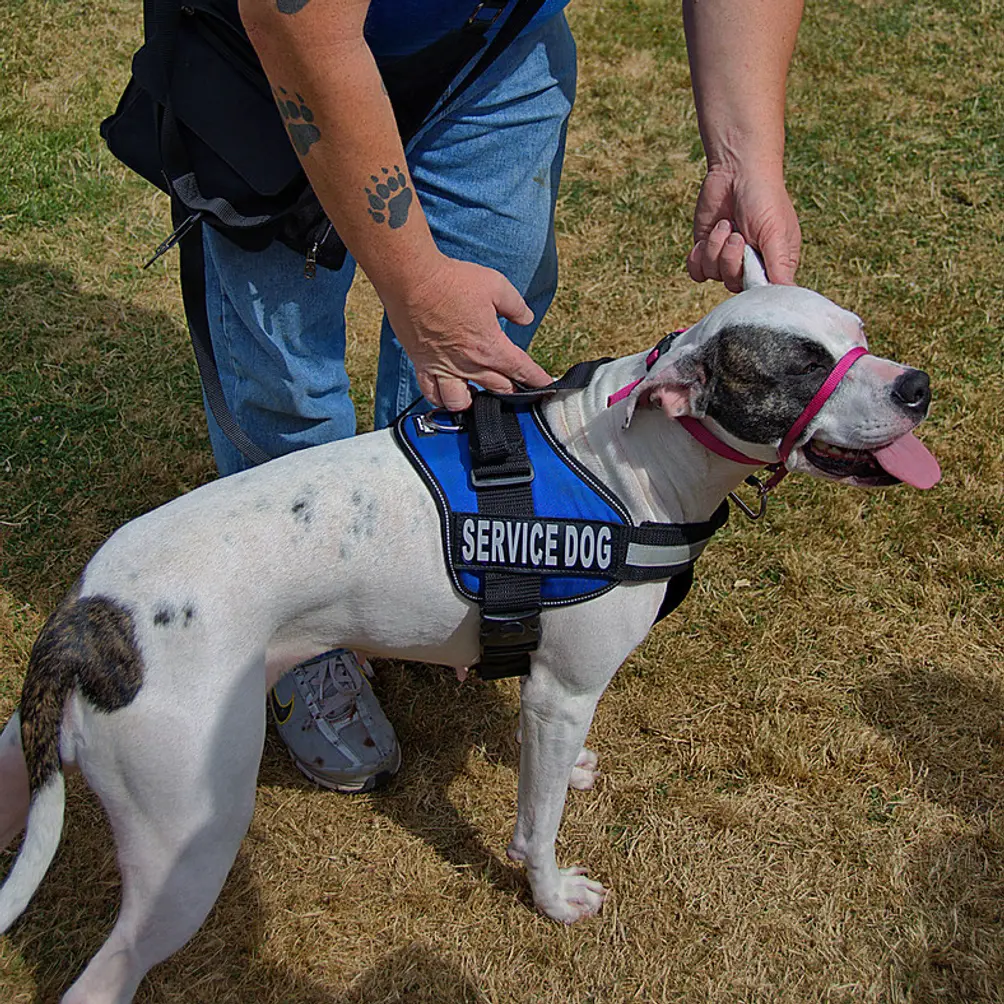 Service dog via Flickr - Scott 97006
Service dog via Flickr - Scott 97006
Service animals are permitted without question, but the road is a bit more slippery for emotional support animals, a term used to describe animals that have not received special training, but provide a therapeutic benefit through companionship for owners with mental illness. If a disability is not readily apparent, landlords and housing providers may require individuals to provide documentation on letterhead from a doctor or other healthcare professional explaining the need for an emotional support animal.
Exotic Pets
When a New York City building is described as “pet-friendly,” the term refers to domestic dogs, domestic cats, small birds, small caged animals like hamsters and gerbils, and certain kinds of reptiles that include non-snapping turtles smaller than 4 inches. Recent converts to urban farming should be advised that hens are allowed, but roosters are not. Additionally, following the legalization of beekeeping in 2010, renters may establish a honeybee hive as long as they register with the city and maintain a safe distance from the neighbors.
Now that we’ve covered what kind of pets are allowed, let’s take a look at the types of exotic pets that are not. Mayor Giuliani banned ferrets in 1999, despite the fact that this pet is legal in other parts of New York State, and the city failed to overturn the ban in 2015. Other members of the weasel family are unequivocally illegal to keep as pets, as are most farm and wild animals including, but not limited to, non-domestic dogs, non-domestic cats, venomous spiders, monkeys, many types of reptiles, predatory birds, and sea mammals. Most people would assume this goes without saying, but every now and then a clandestine cougar, tiger, or alligator emerges to prove otherwise.
Where to Look
The right building for a pet depends very much on the animal’s temperament and activity level, but there are some constants. Dog owners would do well to look at buildings within walking distance of parks and/or dog runs. As such, data from the American Veterinary Medical Association found that New York City's highest concentration of pet owners can be found on either side of Central Park in Manhattan, near Astoria Park in Queens, and the East River waterfront section of Williamsburg in Brooklyn.
Those with older pets would be well advised to stick to elevator buildings so they don’t have to worry about navigating the stairs. Larger pets would naturally do better in an apartment with more square footage. And the pet-friendliest buildings of all may be amenity-rich new construction with offerings like dog runs, pet-washing stations, and on-call vet and pet-sitting service.
Those with older pets would be well advised to stick to elevator buildings so they don’t have to worry about navigating the stairs. Larger pets would naturally do better in an apartment with more square footage. And the pet-friendliest buildings of all may be amenity-rich new construction with offerings like dog runs, pet-washing stations, and on-call vet and pet-sitting service.
It should be noted that most items on this wish list apply to dogs. Cats are generally easier to tend to in New York than dogs, and more welcome - a 2018 study found that while there are myriad dog restrictions, there are very few on cats. However, our feline friends would be happiest in a home with oversized windows - they enjoy the sunlight and views as much as we do!
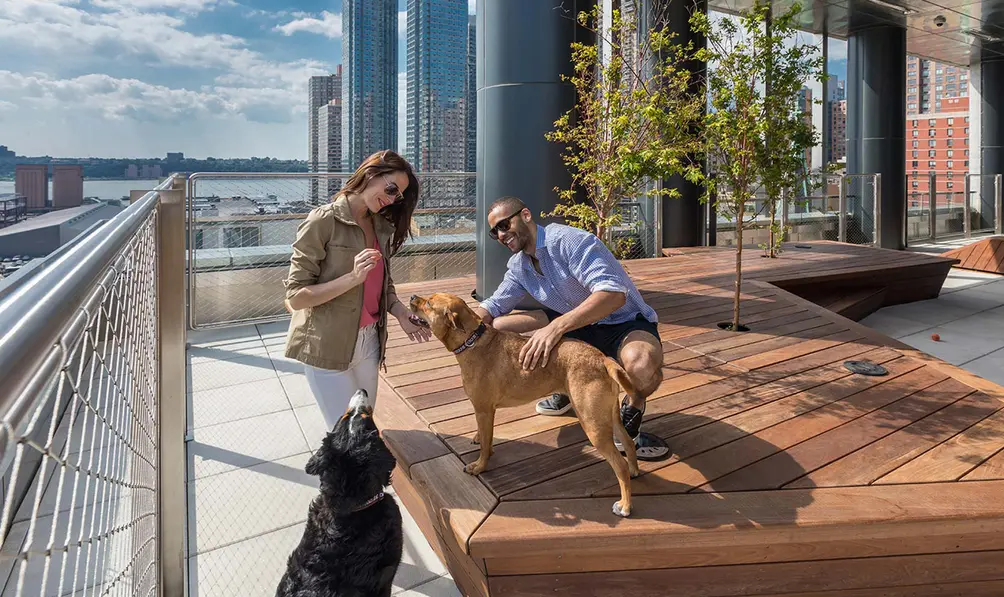
Pet-Friendly Condos
77 Greenwich Street, Financial District
One- to three-beds from $1,749,000
Amenities include outdoor dog run


77 Greenwich Street, #32B
$2,995,000
Financial District | Condominium | 2 Bedrooms, 3 Baths | 1,487 ft2
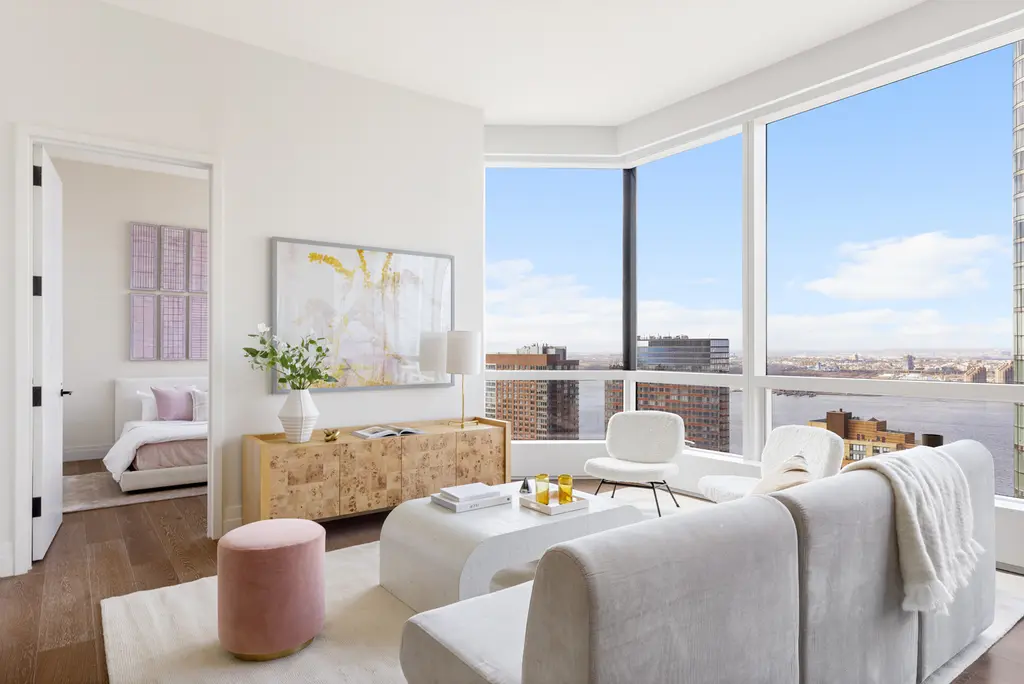
77 Greenwich Street, #32B (Christies International Real Estate Group LLC)

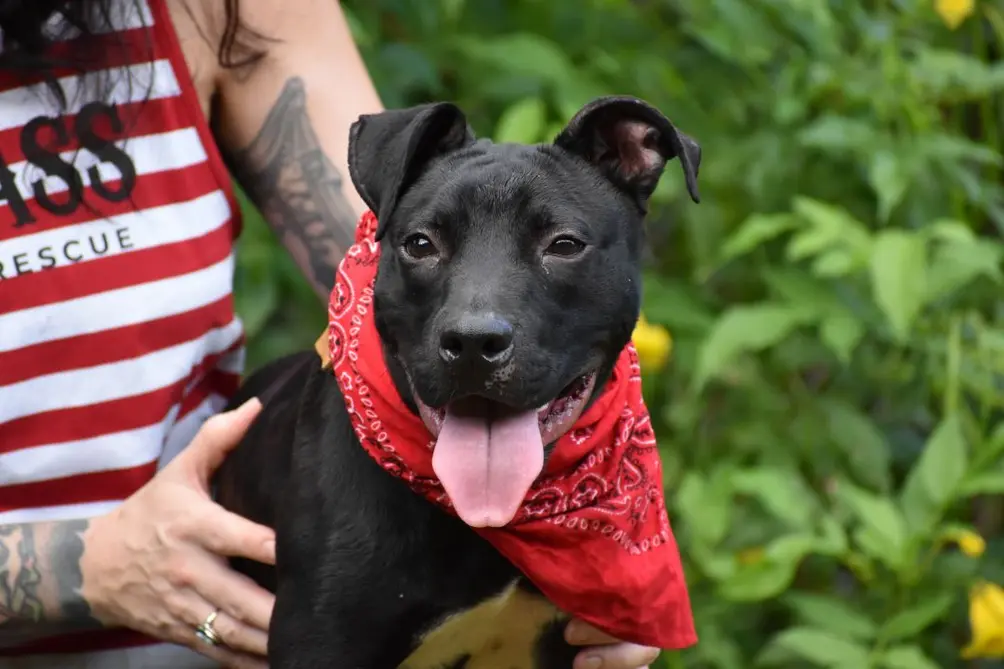 Scallywag (Badass Animal Rescue)
Scallywag (Badass Animal Rescue)
Male | Labrador Retriever mix | Young (about 1 year)
Every dog’s got a bit of a scallywag in them—after all, what’s life without a little mischief? But generally, I’m a smart cookie who loves learning new tricks, watching TV, and going on a good sniffari. Foster feedback: "Scallywag loves to stop and look into every store/bank/building that has glass doors/windows, as though he's an impatient customer waiting to be let in." Learn more and inquire about adoption here.
277 Fifth Avenue, NoMad
One- to four-beds from $1,750,000
Amenities include reward-based dog training, dog walkers providing real-time updates, and dog day care through the concierge service

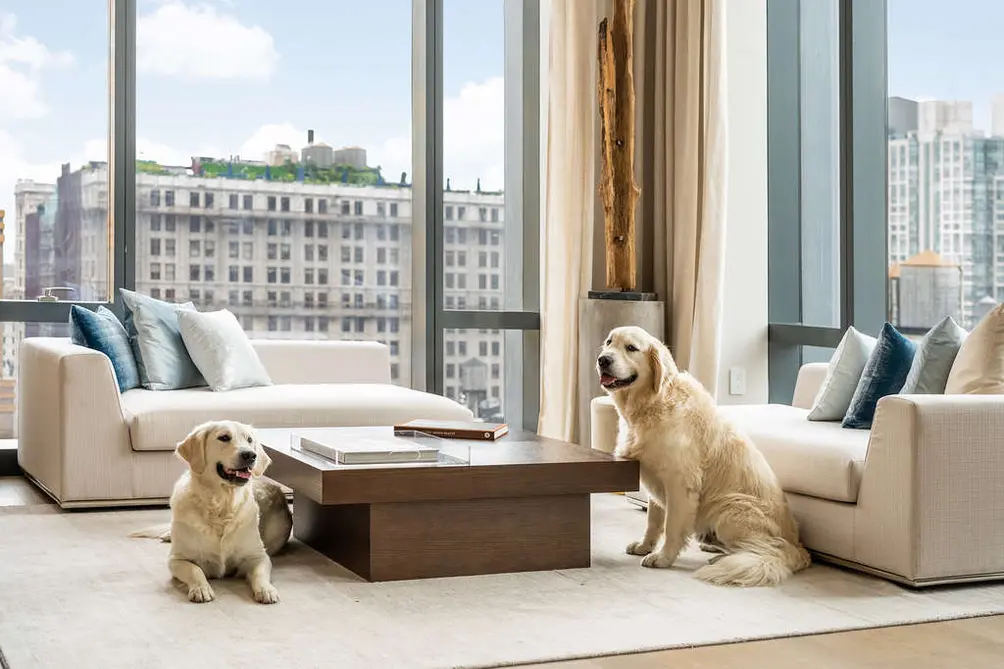 Image via Kenneth Chen
Image via Kenneth Chen
277 Fifth Avenue, #47B
$4,825,000
Flatiron/Union Square | Condominium | 2 Bedrooms, 2 Baths | 1,557 ft2

277 Fifth Avenue, #47B (Douglas Elliman Real Estate)
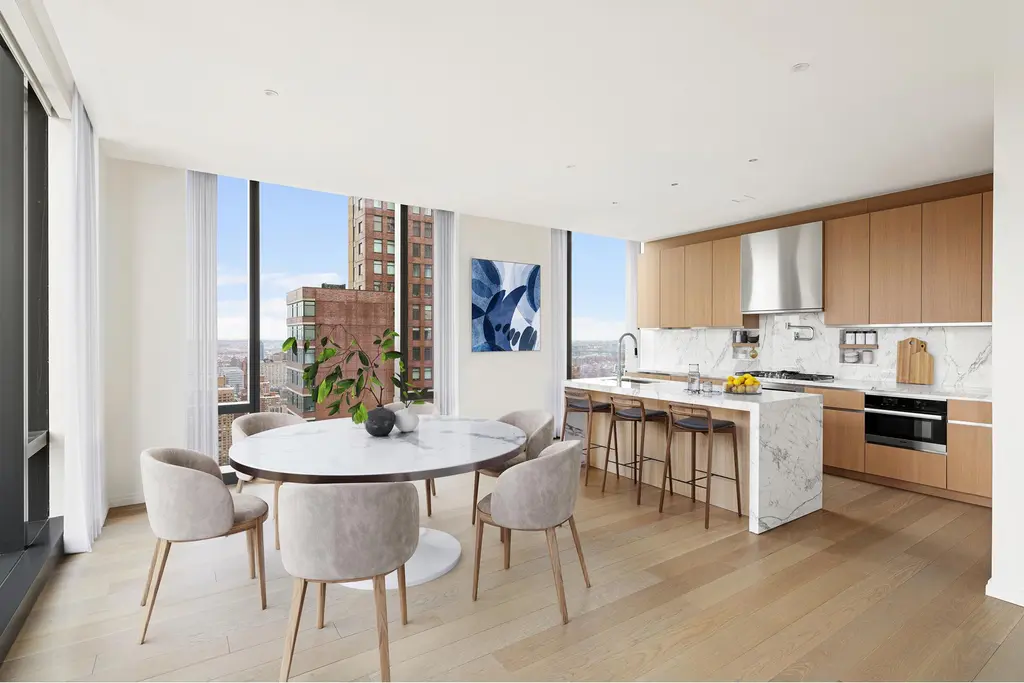
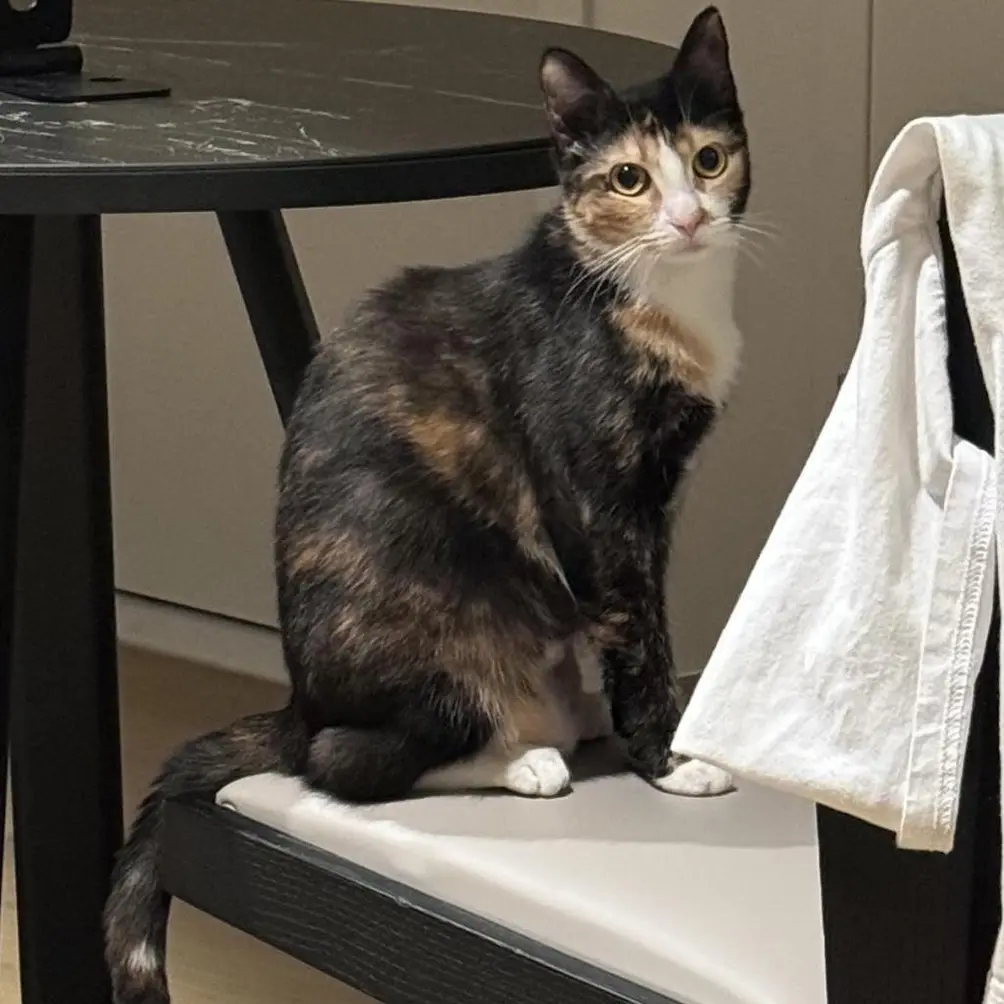 Salty (Best Friends)
Salty (Best Friends)
Female | Domestic shorthair | Young (about 1 year)
Meet Salty, a charming 1-year-old calico female, whose cuteness knows no bounds. This lovely lady is not just a visual treat with her unique coat, but she's also a bundle of sweetness and playful energy. Salty is on a mission to steal hearts and create delightful moments with her new family. Foster feedback: "She follows us around and watches us when we do our dishes, and when brushing our teeth etc., She's eating well and eats treats off of our hands too." Learn more and inquire about adoption here.
Manhattan View at MiMa, Midtown West
Studios to one-beds from $1,397,500
Amenities include in-building Dog City pet care and spa
 Manhattan View at MiMa (Related)
Manhattan View at MiMa (Related)
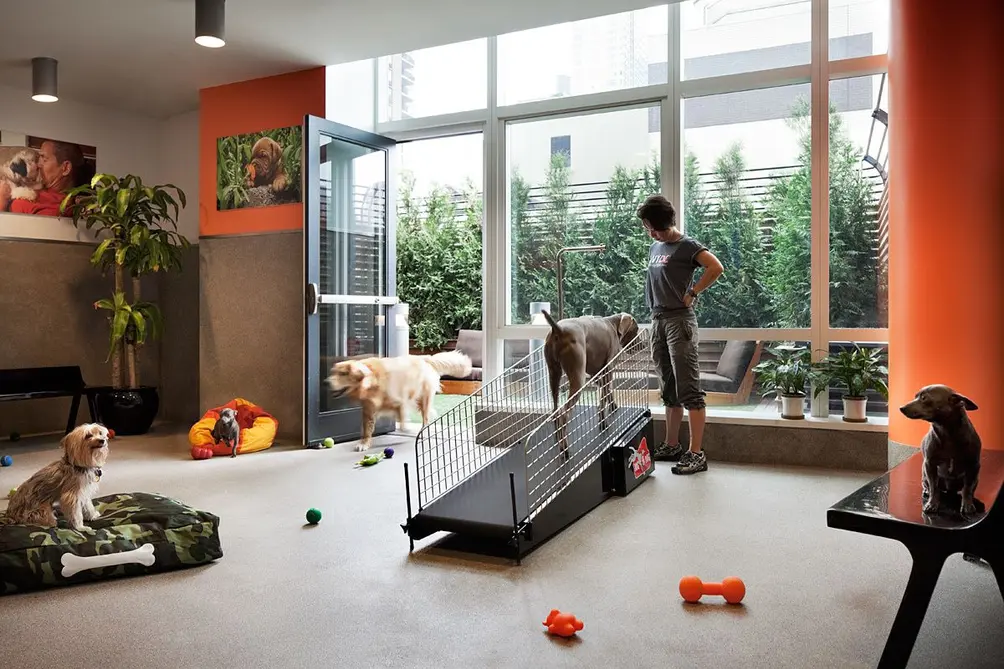

Manhattan View at MiMa, #54M (Sothebys International Realty)

Would you like to tour any of these properties?
Just complete the info below.
Or call us at (212) 755-5544
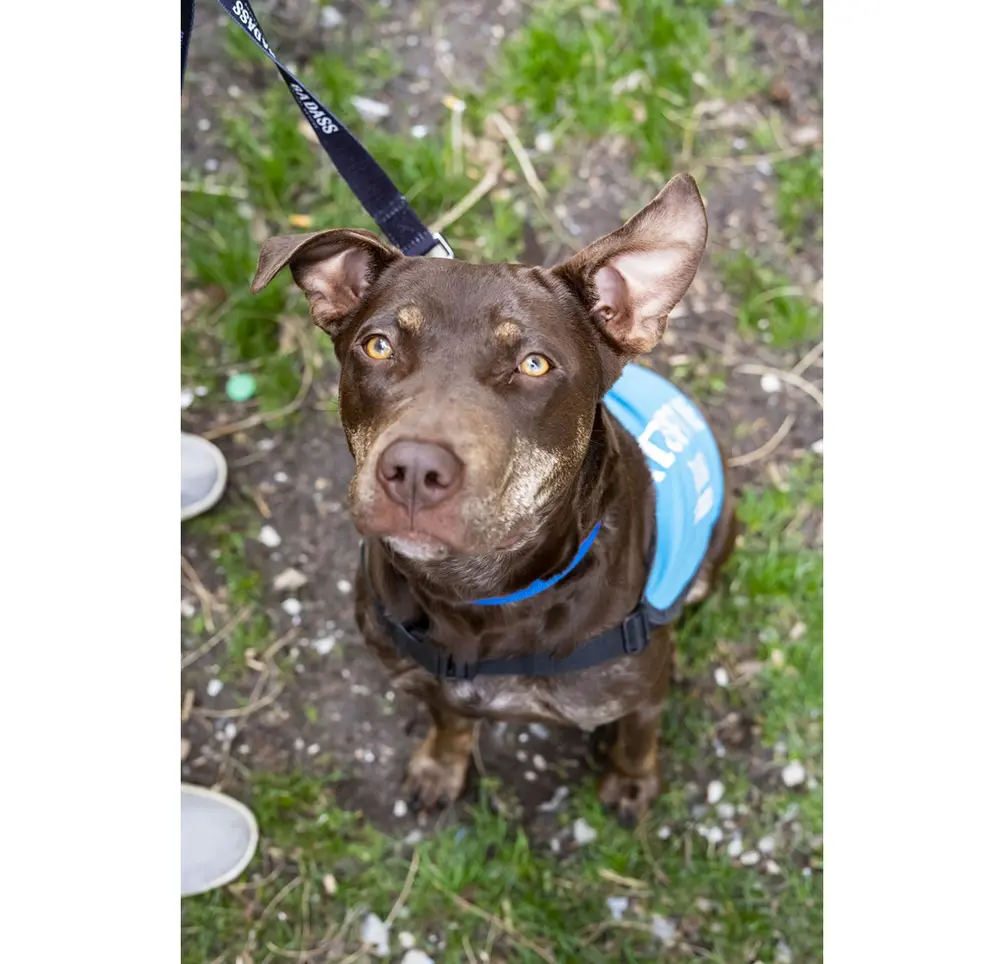 Rocket (Badass Animal Rescue)
Rocket (Badass Animal Rescue)
Male | Retriever mix | Young (about 1 year)
Elton John was right: I’m a Rocket man, and I’m so over burning out my fuse alone! I’m curious and gentle, and I love meeting new people. Let’s spend forever playing fetch together—and then can you give me some belly rubs? They’re my favorite. Foster feedback: “Rocket is a total snuggle-bug—he sneaks up onto the couch when he thinks you're not looking and curls up in any little nook he can!” Learn more and inquire about adoption here.
11 Hoyt Street, Downtown Brooklyn
Studios to four-beds from $749,000
Amenities include private park with partially covered dog run

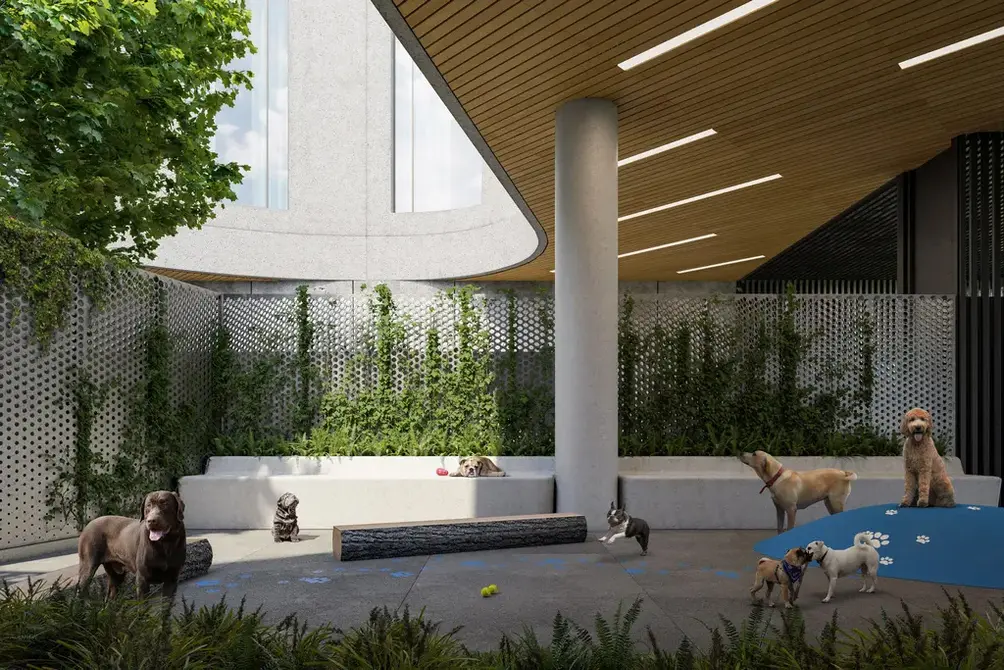

11 Hoyt, #56B (Corcoran Group)

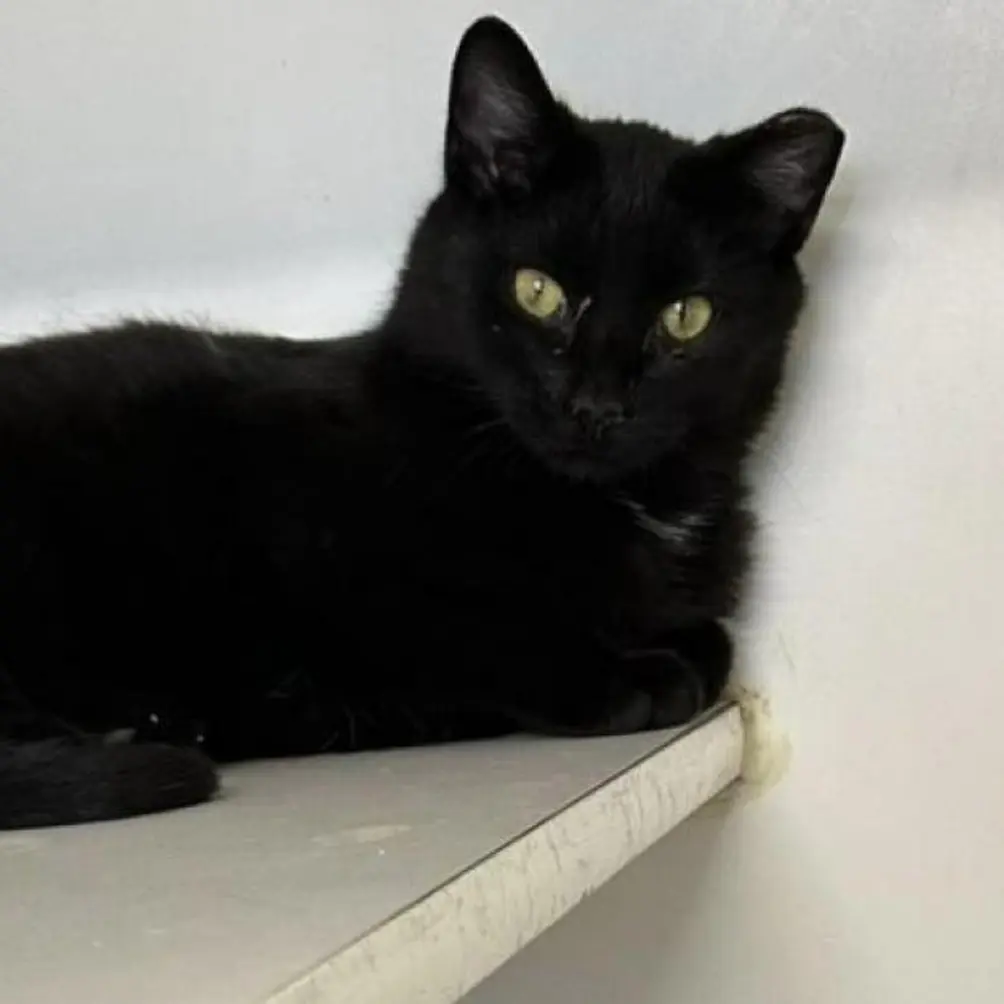 Beavis (Best Friends)
Beavis (Best Friends)
Male | Domestic shorthair | Young (about 1 year)
Meet Beavis, a charming 10-month-old male cat with a sleek black coat that exudes elegance and sophistication. Despite his young age, Beavis possesses a remarkable sense of grace and poise, making him a standout among his peers. He is very playful, loves toys and is happy pouncing about on his own as well as interacting. While Beavis may initially appear shy, he quickly warms up to those who show him kindness and patience. Learn more and inquire about adoption here.
Waterline Square, Riverside Drive/West End Avenue
One-bed for sale for $2,395,000
Studios to two-beds for rent from $4,935/month
Amenities include pet grooming studio, three-acre park, and exclusive Far Fetched Canine Enrichment Club

 Far Fetched Canine Enrichment Club (Far Fetched)
Far Fetched Canine Enrichment Club (Far Fetched)
Two Waterline Square, #23D
$2,395,000
Riverside Dr./West End Ave. | Condominium | 1 Bedroom, 1 Bath | 966 ft2

Two Waterline Square, #23D (Corcoran Group)
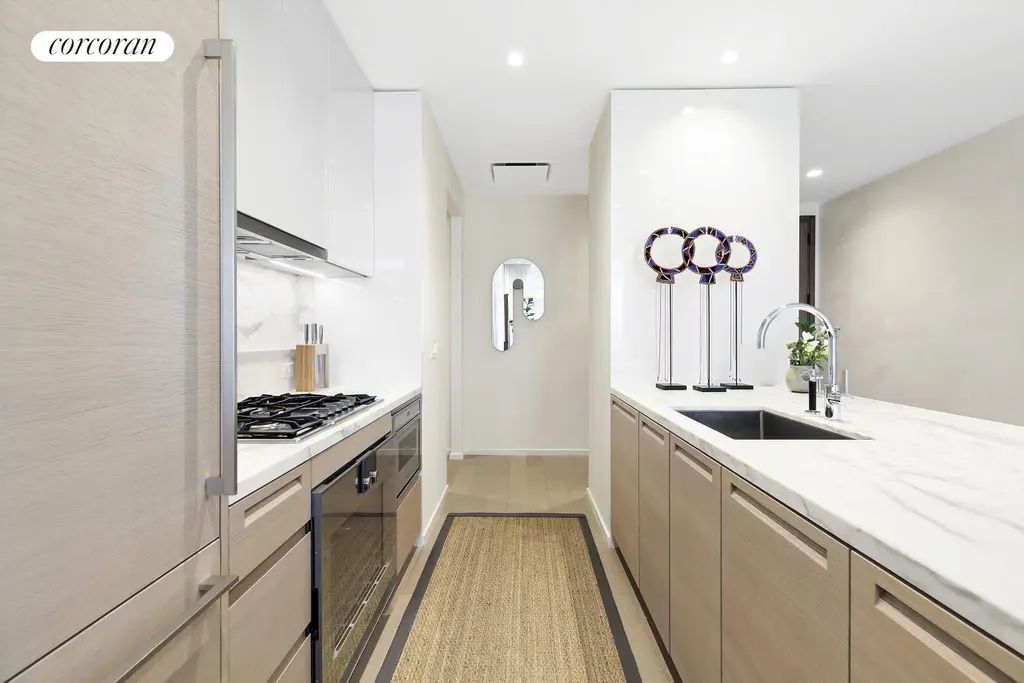
 Ida Carloni Talli (Badass Animal Rescue)
Ida Carloni Talli (Badass Animal Rescue)
Female | Terrier | Adult (4 years old)
Meet Italian icon, silent film star, and goodest girl we know Ida Carloni Talli! Sweet, playful Ida is a perfect example of the ways humans so often fail their dogs...but now, with the proper structure and boundaries, Ida is thriving—and we know we'll find the ideal, training-minded forever home for her. Could you be it? Learn more and inquire about adoption here.
Pet-Friendly Rentals
555TEN, Midtown West
Studios to three-beds from $4,000/month
Amenities include covered outdoor dog park and pet care and grooming from Throw Me a Bone
 555TEN (Extell)
555TEN (Extell)
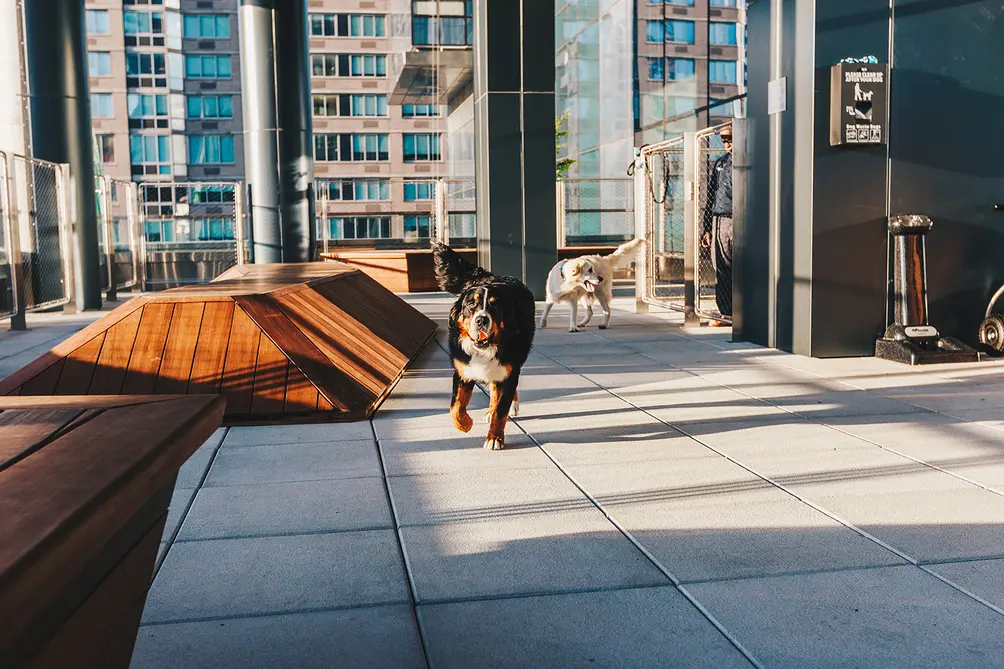

555Ten, #45K (Extell Marketing Group LLC)

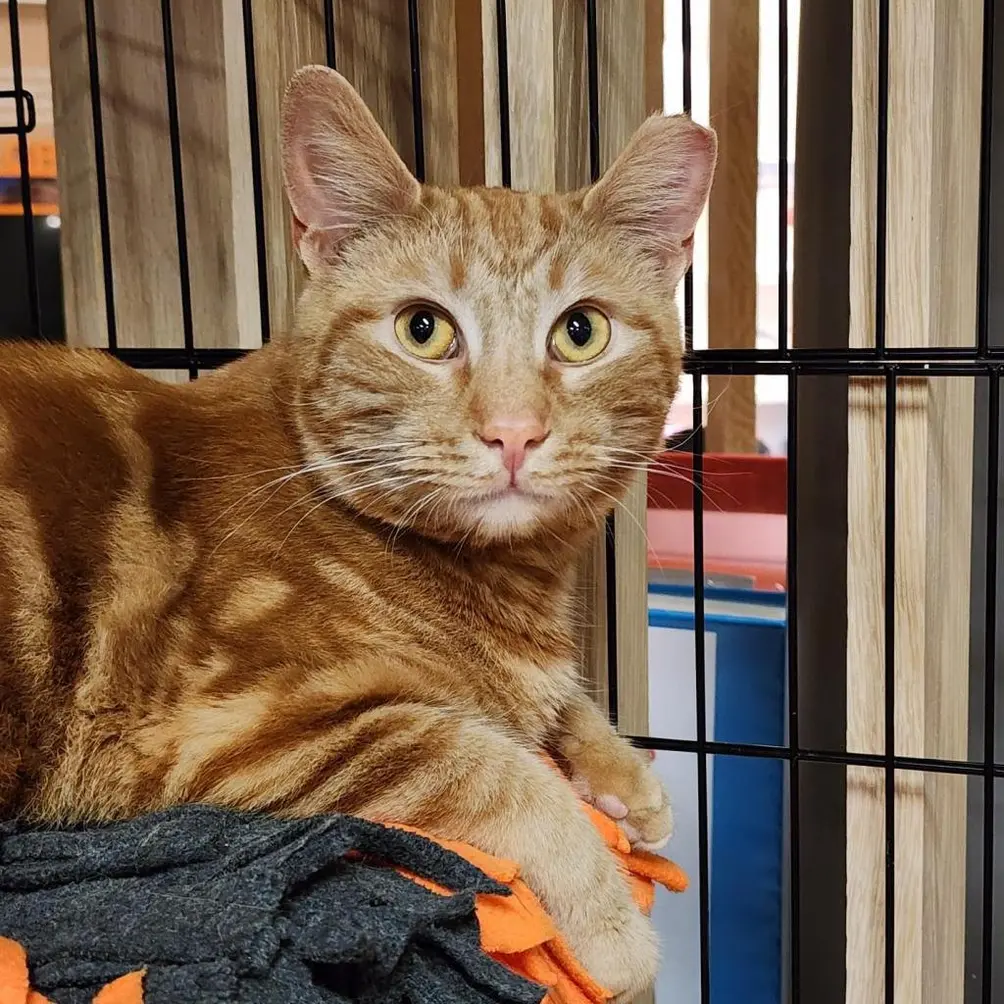 Swedish Fish (Best Friends)
Swedish Fish (Best Friends)
Male | Domestic shorthair | Adult (about 5 years)
Swedish Fish is a very handsome 4-year old orange tabby boy. Like all cats and kittens, he will need lots of socialization, play time and love. He has the softest fur and a very, sweet and playful disposition. He has a lot of energy and is very social. He loves attention and being involved in whatever is going on. Learn more and inquire about adoption here.
3ELEVEN, Chelsea
Studios to two-beds from $4,350/month
Amenities include on-site pet care by Throw Me a Bone and separate dog runs for big and small breeds
 3 Eleven (Clinton Management)
3 Eleven (Clinton Management)

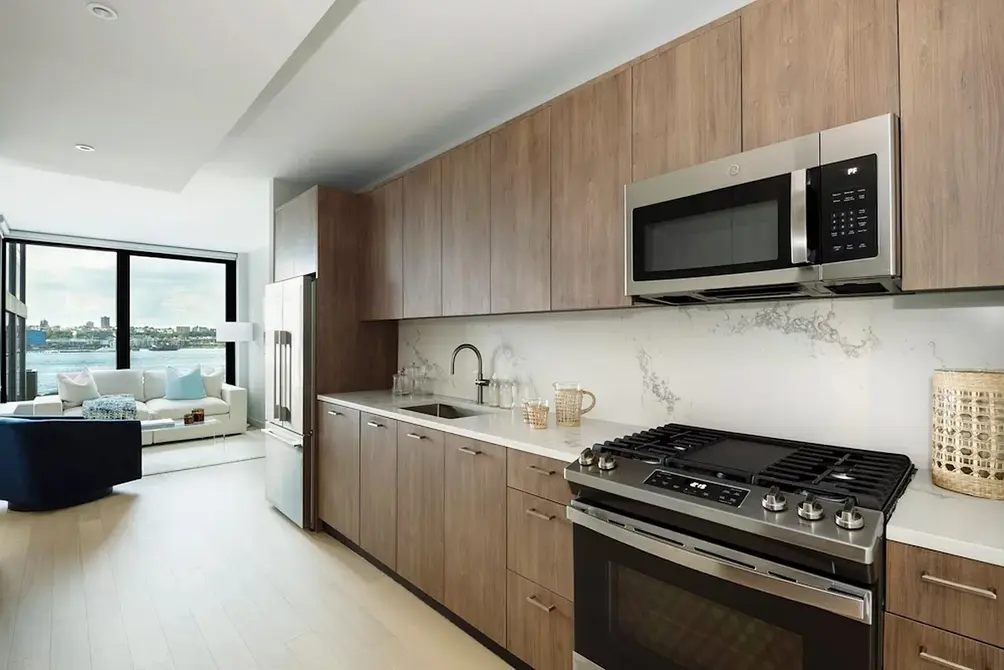 3ELEVEN, #1412 (Clinton Management)
3ELEVEN, #1412 (Clinton Management)
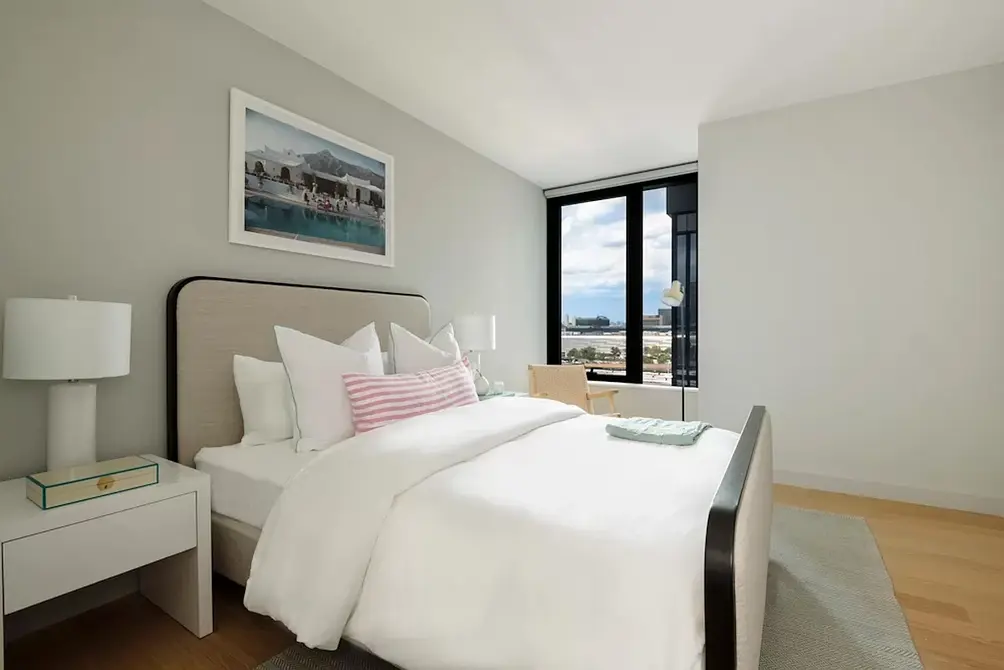
From the Listing: Every apartment at 3ELEVEN features an intentional design where every square foot of space is beautiful and functional in equal measure. The homes are open and spacious with ample room for sofas, dining tables and nightstands. The materials and finishes rival those found in condominiums, including wide plank wood flooring, quartz Caesarstone countertops, backsplashes and island waterfalls in the kitchens and custom vanities in the baths. See floor plan and full details here.
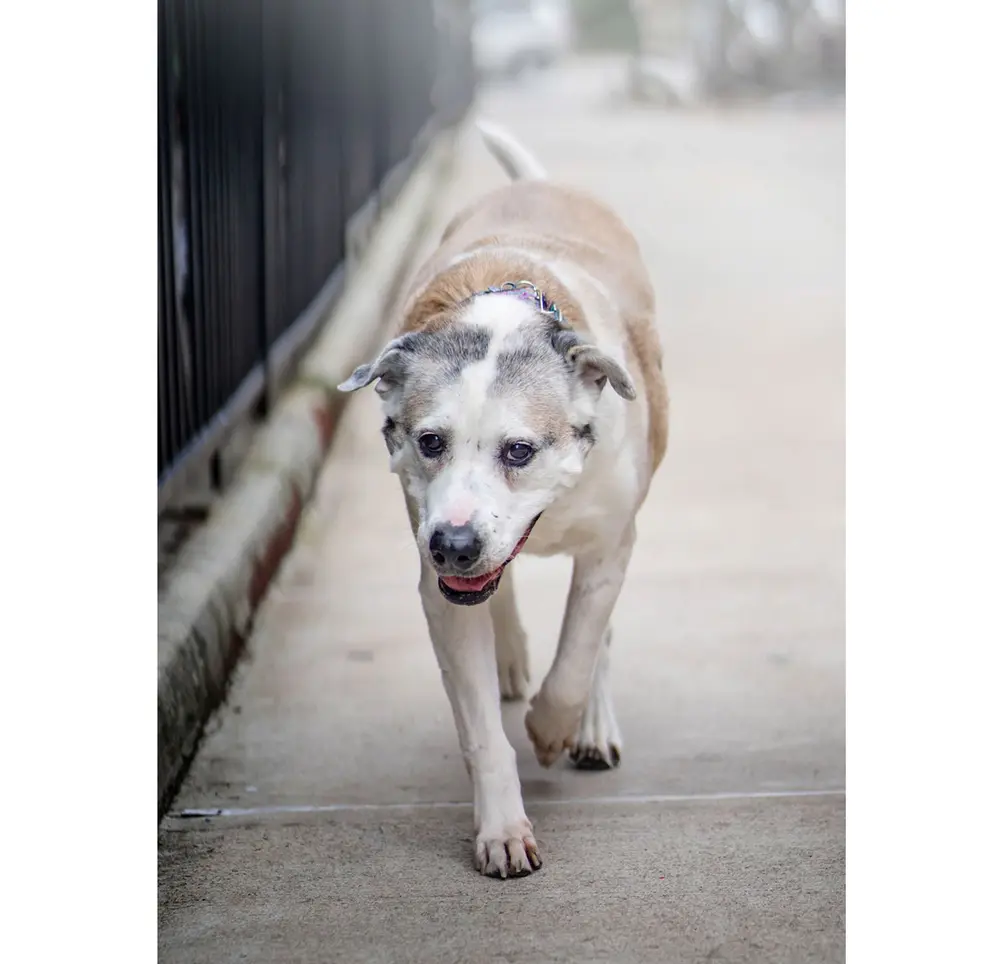 Ethel Mertz (Badass Animal Rescue)
Ethel Mertz (Badass Animal Rescue)
Female | Great Pyrenees | Senior (10 years old)
Ethel Mertz may be 10 years old, but she still has the puppy dog stare down pat. She’s always scheming and dreaming of how to get more belly rubs and back scratches. If you’re lucky, you might catch her in a full downward dog once you’ve found the right spot. This older gal still has plenty of spunk and looking for a home that can give her the love and attention she deserves. Learn more and inquire about adoption here.
21 West End Avenue, Upper West Side
Studios to two-beds from $4,350/month
Amenities include an indoor dog park and dog spa
One month free rent on a 12-month lease

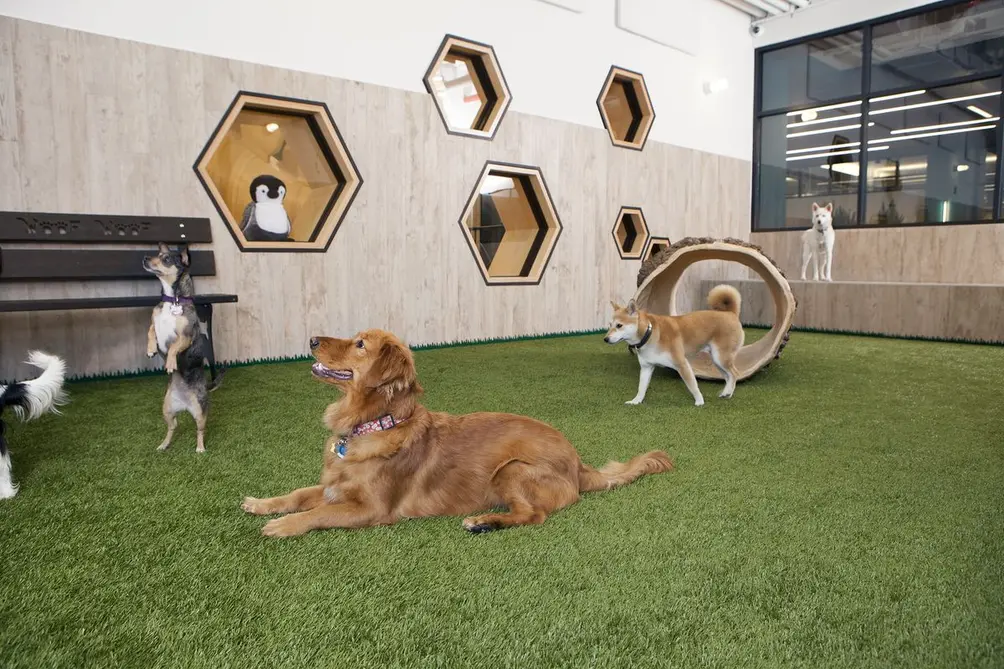 All images of 21 West End Avenue via Dermot
All images of 21 West End Avenue via Dermot
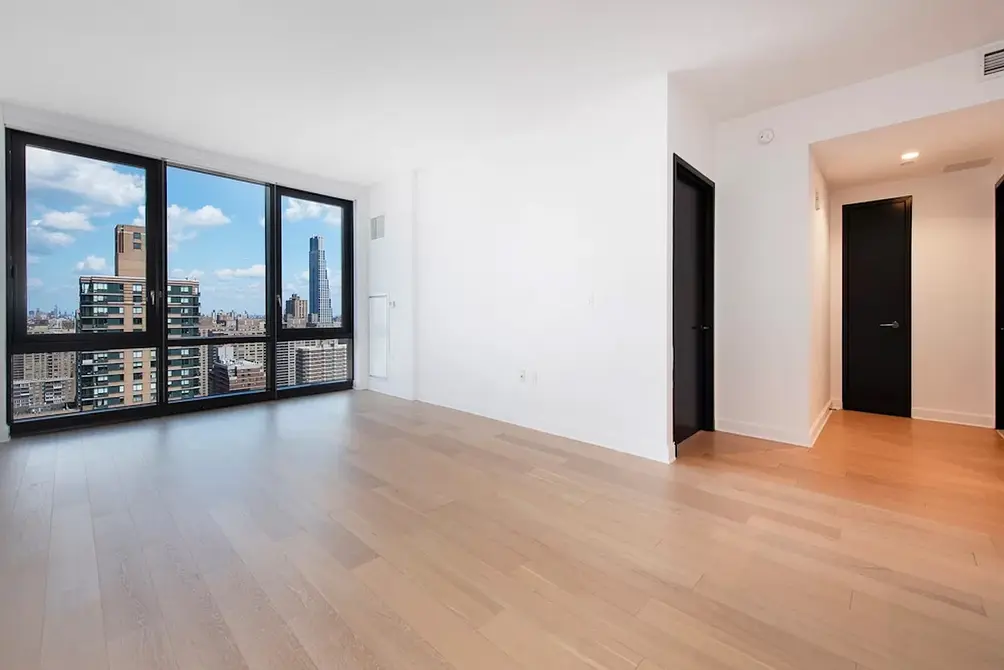 21 West End Avenue, #2713 (Dermot Company)
21 West End Avenue, #2713 (Dermot Company)
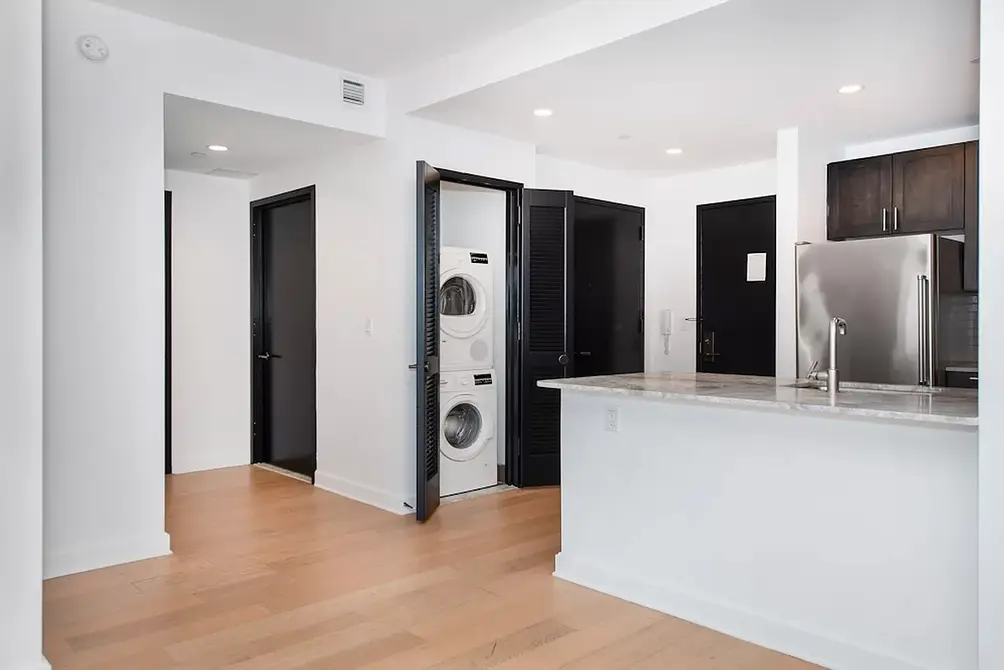
From the Listing: This 1-bedroom, 1-bath has so much to offer! The bedroom can fit a king-size bed. The kitchen contains granite countertops, dishwasher, microwave, and ample storage space, and an in-unit washer/dryer in this newly renovated luxury building. See floor plan and full details here.
 Rico (Best Friends)
Rico (Best Friends)
Male | Domestic shorthair | Adult (about 8 years)
Rico is the perfect mix of sassy, sweet, playful and independent. He will keep you laughing with his kitten-like antics: often you can see him chasing a crinkle toy or running in circles after a wand toy. He'll do most anything for a treat and enjoys perching quietly next to you or napping in a sunny spot. Learn more and inquire about adoption here.
AVA DoBro, Downtown Brooklyn
Studios to two-beds from $3,012/month
Amenities include WAG pet spa and outdoor dog run with separate big and small dog play areas, agility equipment, and heated pergola
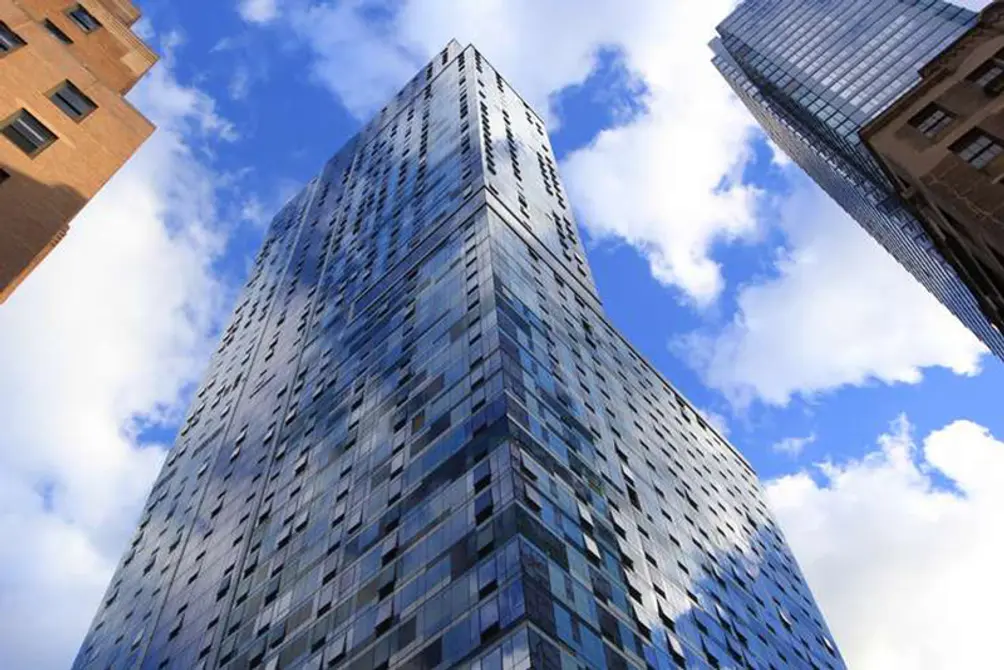
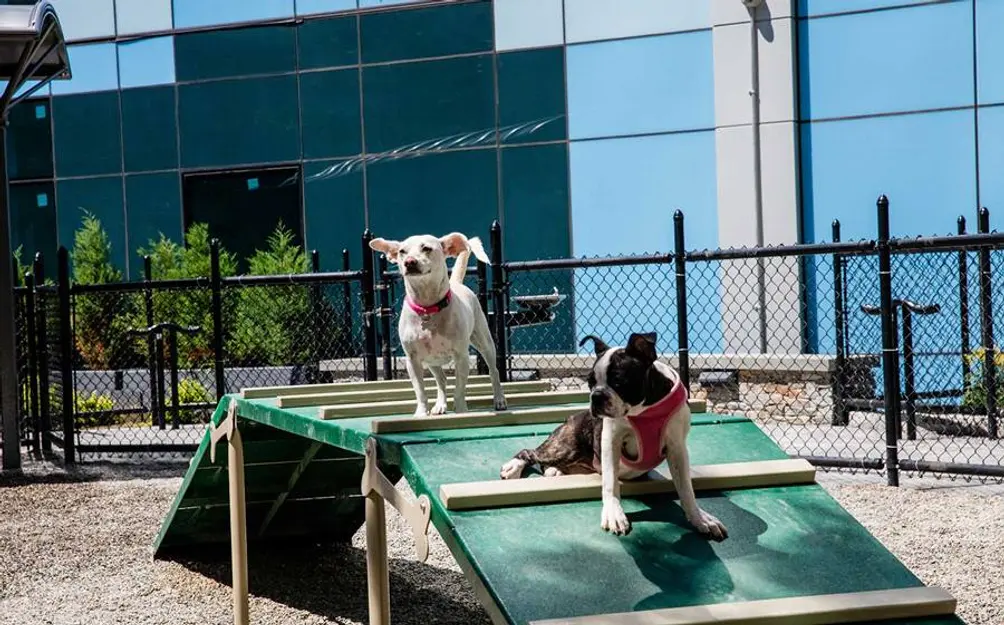
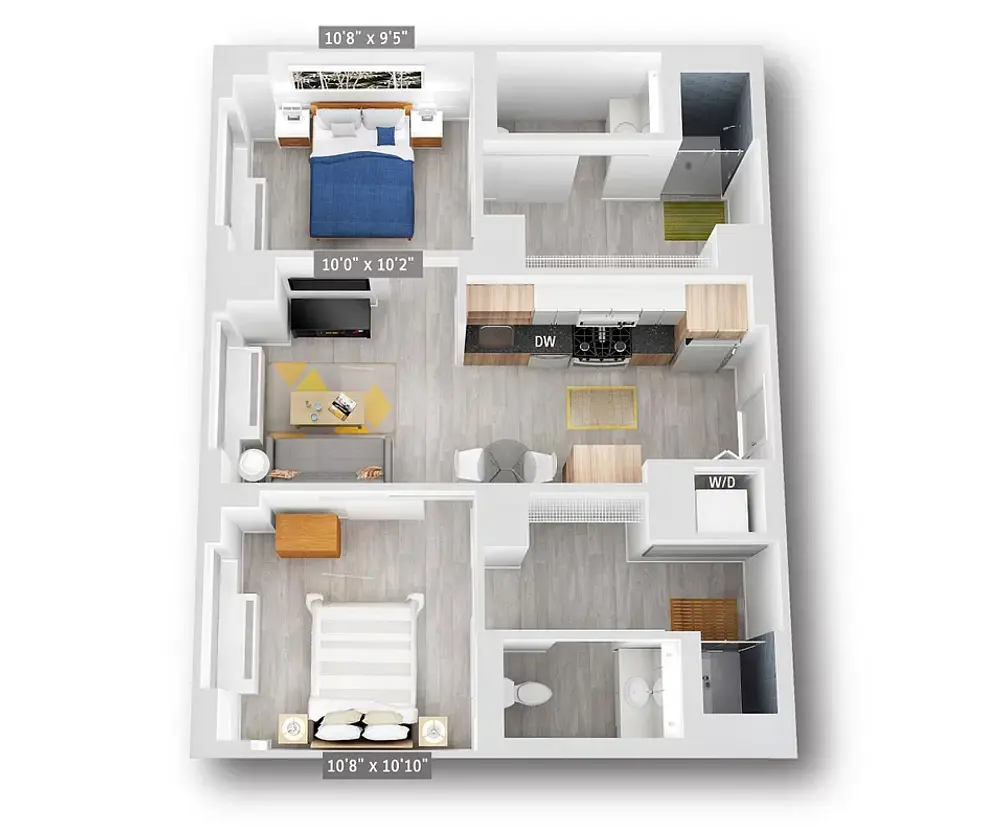 AVA DoBro, #22V (AvalonBay Communities)
AVA DoBro, #22V (AvalonBay Communities)
From the Listing: AVA DoBro is steps from cultural icons such as the Barclays Center and Brooklyn Flea, and local restaurants and nightlife of Fort Greene, Carroll Gardens, and Brooklyn Heights. Now offering furnished and unfurnished floorplans, AVA DoBro features brand new studio, 1, 2, and 3 bedroom floor plans. These pet friendly, Brooklyn apartment homes include kitchens with stainless steel appliances, quartz-stone countertops, and tile backsplashes. Plus, most units come with hard-surface plank flooring, an in-unit washer/dryer, and a built-in charging station. AVA DoBro features a 58th floor rooftop deck and lounge, 30th floor terrace with grills, heated outdoor dog run, and fully-equipped fitness center. See full details here.
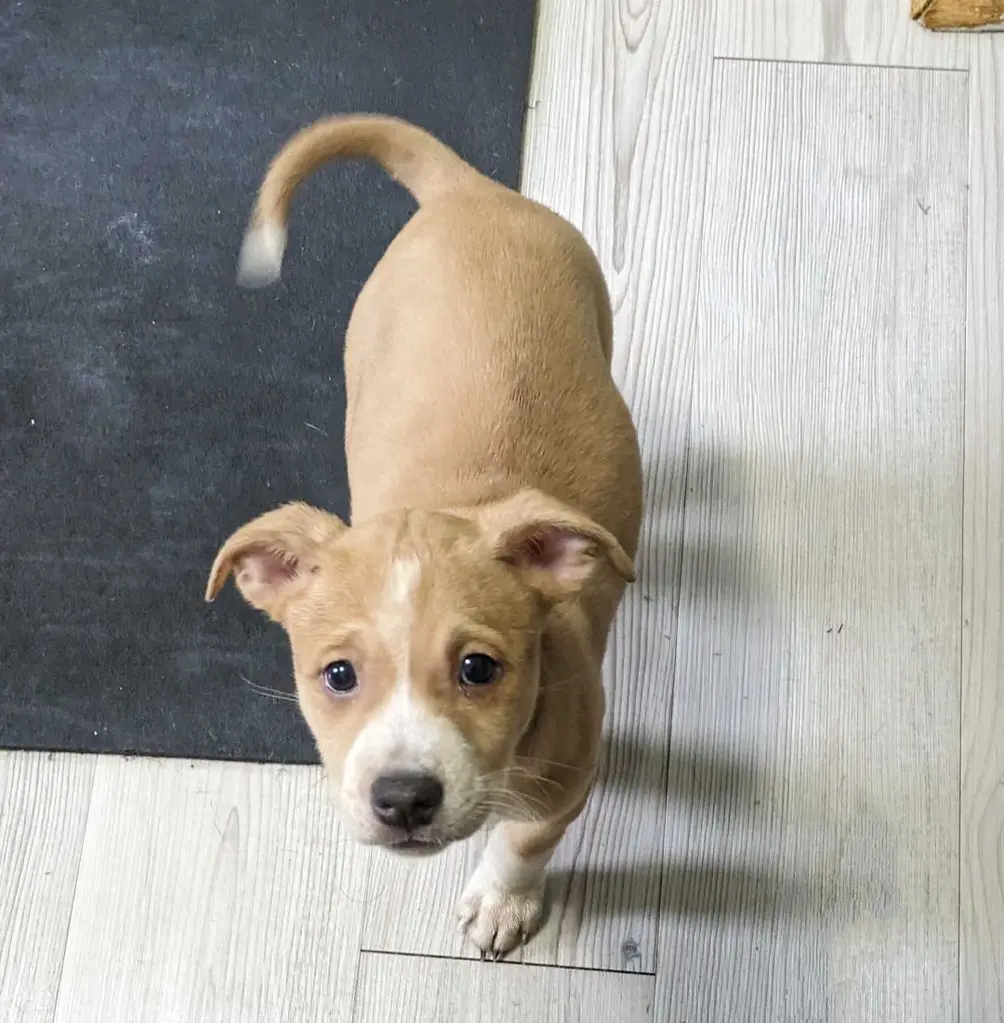 Triscuit (Badass Animal Rescue)
Triscuit (Badass Animal Rescue)
Female | Mixed Breed | Puppy (3 months old)
Polly want a puppy? You will when you meet me! My name is Triscuit and my mama, Polly, had me shortly after she was rescued by Badass from the U.S. Virgin Islands. I’m super friendly and a little shy—but the humans say it makes me extra cute. Learn more and inquire about adoption here.
Would you like to tour any of these properties?
Just complete the info below.
Or call us at (212) 755-5544
Would you like to tour any of these properties?
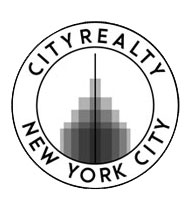
Content Specialist
Michelle Merritt
Michelle is a contributing writer and editor for real estate news in New York City











 6sqft delivers the latest on real estate, architecture, and design, straight from New York City.
6sqft delivers the latest on real estate, architecture, and design, straight from New York City.
